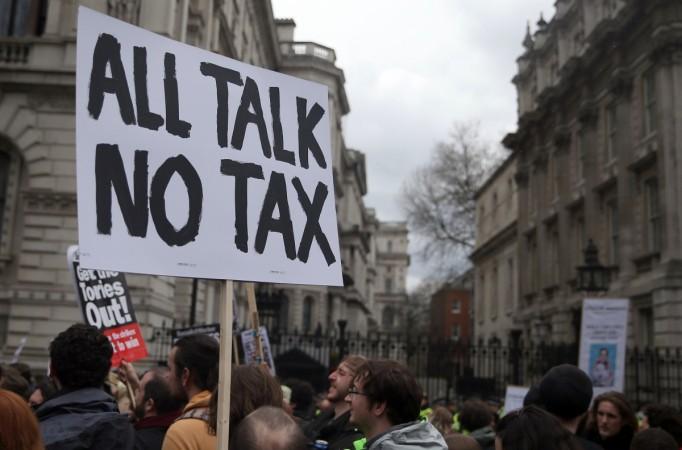
British Prime Minister David Cameron published his tax records Sunday in an attempt to draw a line under questions about his personal finances raised by the mention of his late father in the Panama Papers for setting up an offshore fund.
The revelations have led to demands for Cameron's resignation and handed ammunition to opposition lawmakers who questioned why he was reluctant to detail his financial connections with his father.
Cameron took the unorthodox step of releasing the normally confidential details after saying he should have handled the scrutiny of his family's tax affairs better.
The documents from RNS Chartered Accountants — covering six years — show Cameron paid tax of £75,898 ($107,198) on income of £200,307 in the 2014-2015 financial year, the most recent one included.
His income comprised his £140,522 salary, taxable expenses of £9,834, £46,899 from half of the share of rent from his family home in London and £3,052 pounds in interest on savings, according to the record.
Scores of politicians and business figures have been implicated in the Panama Papers, including the prime minister of Iceland who has since stepped down. The 11.5 million documents leaked from the Panamanian law firm Mossack Fonseca detail the creation of more than 200,000 companies in offshore tax havens.
While Cameron is not accused of doing anything illegal, he made four different statements over four days about his late father's inclusion in the documents.
He said Thursday he once had a stake in his father's offshore trust and had profited from it.
He said the unit investment trust was not set up to avoid tax but to invest in dollar-denominated shares and that he had paid all taxes due on his own investment, which was worth "something like £30,000" when he sold out in January 2010, before he became prime minister.
Cameron's admission of fault comes after a torrid period for his Conservative government. It is divided over a June 23 referendum on whether to remain in the European Union, has been forced to backtrack on welfare cuts and has been accused of not protecting Britain's steel industry.
Seeking to further take back the initiative, Cameron also announced Sunday a new task force, jointly led by Britain's tax authority and National Crime Agency, to build on the work Britain has done to tackle money laundering and tax evasion.
When Britain hosted a G8 summit in 2013, Cameron put tackling tax avoidance at the heart of the agenda. Some of Britain's former colonies increasingly rely on revenues from shell companies and trusts that often hide wealth.
"The UK has been at the forefront of international action to tackle the global scourge of aggressive tax avoidance and evasion, and international corruption more broadly," Cameron said in a statement.
"There is clearly further to go and this task force will bring the best of British expertise to deal with any wrongdoing relating to the Panama Papers."
The government said it had tracked down £2 billion ($2.82 billion) from offshore tax dodgers since 2010, and authorities were already investigating 700 current leads with links to Panama.
The task force will receive £10 million of funding to start work, the government said.





!['It's not Mumbai traffic, it's air traffic': Suriya apologises to Mumbai media after paparazzi yelled At Him for making them wait for hours [Watch]](https://data1.ibtimes.co.in/en/full/806234/its-not-mumbai-traffic-its-air-traffic-suriya-apologises-mumbai-media-after-paparazzi.jpg?w=220&h=138)
![Bigg Boss 16-fame Sreejita De and Michael Blohm-Pape exchange wedding vows in dreamy Bengali ceremony [Inside Pics]](https://data1.ibtimes.co.in/en/full/806233/bigg-boss-16-fame-sreejita-de-michael-blohm-pape-exchange-wedding-vows-dreamy-bengali-ceremony.jpg?w=220&h=138)






